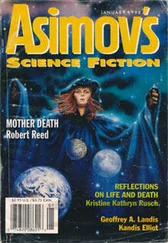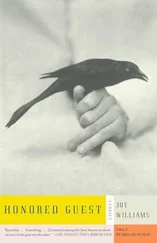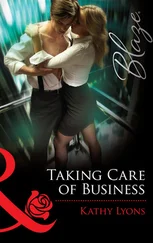Joy Williams - Taking Care
Здесь есть возможность читать онлайн «Joy Williams - Taking Care» весь текст электронной книги совершенно бесплатно (целиком полную версию без сокращений). В некоторых случаях можно слушать аудио, скачать через торрент в формате fb2 и присутствует краткое содержание. Год выпуска: 2010, Издательство: Vintage, Жанр: Современная проза, на английском языке. Описание произведения, (предисловие) а так же отзывы посетителей доступны на портале библиотеки ЛибКат.
- Название:Taking Care
- Автор:
- Издательство:Vintage
- Жанр:
- Год:2010
- ISBN:нет данных
- Рейтинг книги:5 / 5. Голосов: 1
-
Избранное:Добавить в избранное
- Отзывы:
-
Ваша оценка:
- 100
- 1
- 2
- 3
- 4
- 5
Taking Care: краткое содержание, описание и аннотация
Предлагаем к чтению аннотацию, описание, краткое содержание или предисловие (зависит от того, что написал сам автор книги «Taking Care»). Если вы не нашли необходимую информацию о книге — напишите в комментариях, мы постараемся отыскать её.
Taking Care — читать онлайн бесплатно полную книгу (весь текст) целиком
Ниже представлен текст книги, разбитый по страницам. Система сохранения места последней прочитанной страницы, позволяет с удобством читать онлайн бесплатно книгу «Taking Care», без необходимости каждый раз заново искать на чём Вы остановились. Поставьте закладку, и сможете в любой момент перейти на страницу, на которой закончили чтение.
Интервал:
Закладка:
Act but do not rely upon one’s own abilities, thinks the yard boy. He chews upon his nails. The moon can shine in one hundred different bowls, he thinks. What a lot of junk the yard boy thinks He is as lost in the darkness of his solid thoughts as a yard boy can be. He watches his girl friend angrily as she boogies by.
The rabbit’s-foot fern brightens at the yard boy’s true annoyance. Its fuzzy long-haired rhizomes clutch its pot tightly. The space around it simmers, it bubbles. Each cell mobilizes its intent of skillful and creative action. It turns its leaves toward the Spanish bayonet. It straightens and sways. Straightens and sways. A moment passes. The message of retribution is received along the heated air. The yard boy sees the Spanish bayonet uproot itself and move out.
Winter Chemistry

I T was the middle of January and there was nothing to look forward to. The radio station went off at dusk and dusk came early in the afternoon and then came the dark and nothing to watch but a bleached-out moon lying over fields slick as a frosted cake, and nothing to hear at all.
There was nothing left of Christmas but the cold. The cold slouched and pressed against the people. Their blood was full of it. And their eyes and the food that they ate. The people walked the streets wearing woolen masks as though they were gangsters, or as though they were deformed. Old ladies died of breaks and foolish wounds in houses where no one came, and fish froze in the quiet of their rivers.
The cold didn’t invent anything like the summer has a habit of doing and it didn’t disclose anything like the spring. It lay powerfully encamped — waiting, altering one’s ambitions, encouraging ends. The cold made for an ache, a restlessness and an irritation, and thinking that fell in odd and unemployable directions. The pain would start in your lap, boring up and tearing through like a big-beaked bird, traveling up your spine then to the base of your skull, entering your brain like fever. So it was explained.
Judy Cushman and Julep Lee were the best of friends. Each knew things that the other did not, and each had a different manner of going after the things that they wanted. Each loved the handsome chemistry teacher of the high school. Love had different beginnings but always the same end. Someone was going to get hurt. Julep was too discreet to admit this for she tried not to think of shabby things.
They were fourteen and the only thing that was familiar to them was the town and the way they spent their lives there, which they hated.
They slept a great deal and talked about the same things always and made brownies and popcorn and drank Coca-Cola. Julep always made a great show of drinking Coca-Cola because she claimed that her father had given her three shares of stock in it the day she was born. Judy would laugh about this whenever she thought to. “On the day, I was born,” she’d say, “I received the gifts of beauty and luck.”
Their schoolbooks lay open and unread, littered with crumbs and nail trimmings. Every night that didn’t bring a blizzard, they would spy on the chemistry teacher, for they were fourteen and could only infrequently distinguish what they did from what they merely dreamt about.
The chemistry teacher had enormous trembling eyes like a deer and a name in your mouth sweet as a candy bar. DEBEVOISE. He was tall and languid and unmarried and handsome. He lived alone in a single rented room on the second floor of a large house on the coast. The house was the last one on a street that abruptly became a field of pines and stones. Every night the girls would come to the field and, crouching in a hollow, watch him through a pair of cheap binoculars. For a month they had been watching him move woodenly around the small room and still they did not know what it was they wanted to happen. The walls of the room were painted white and he sat at a white desk with his white shirt rolled down to his wrists. The only thing that was on the desk was a tiny television set with a screen the size of a book. He watched it and drank from a glass. Sometimes he would run his own hands through his own dark hair.
Judy Cushman and Julep Lee felt that loving him was a success in itself.
But still they did not know what they waited for in the snow. The rocks dug into their skinny shanks. Their ears went deaf with the cold. At times, Judy thought that she wanted him to bring a woman up there. Or perhaps do something embarrassing or dirty all by himself. But she was not sure about this.
As for Julep, she seldom said things that she had not said once, long before, so there was no way of knowing what she thought.
Julep was the thinnest human being in town, all angles and bruises and fierce joinings. Even her lips were hard and spare and bloodless as bone. Her hair was such a pale, parched blond that it looked white and her brows and lashes were the same color, although her eyes, under heavy round lids that worked slowly as a doll’s, were brown.
Her parents had moved from the South to the North when she was four years old, and she had lived on the same bitter and benumbed coast ever since. She steered her way through each day incredulously, as though she had been kidnapped and sent to some grim prison yard in another world. She couldn’t employ the cold to any advantage so she dreamed of heat, of a sun fierce enough to melt the monstrous town and set her free. She talked about the sun as though it were a personal friend of hers, waiting in the next room for her to get ready and go out with it.
Julep was a Baptist, a clarinetist in the band, a forward on the six-girl basketball team which was famous throughout the state, undefeated, unthreatened, unsmiling. She had scabs upon her knees, a blue silk uniform in her locker, fingernails split and ragged from the gritty leather ball. Julep was an innocent.
Now, Judy Cushman too was an innocent, but had a tendency to see things in a greedy, rutting way. Judy was tiny and tough and wore a garter belt. Almost every one of her eyebrows was plucked from her head and her hair was stacked over a foot high, for her older sister was a hairdresser who taught her half of everything she knew.
Judy was full and sleek and a favorite with the boys and she would tell Julep things that Julep almost died hearing. She would say, “Last night Tommy Saloma exposed himself to my eyes only in the rumpus room of his house,” and Julep would almost faint. She would say, “Billy Colter touched my breast in Library,” and Julep would gasp and hold her head at an unnaturally high angle for she felt that if she held her head on the slightest cant, everything inside her would stream terribly from her mouth, everything she was made of, falling out of her head and shaking out on the floor in front of them.
Judy always told her friend the most awful things she could think of, true or false, and made promises that she would not keep and insulted and disappointed and teased her as much as possible. Julep allowed this and was always deeply affected and bewildered by this, which flattered Judy enormously. This pleasure compensated for the fact that Julep had white hair that Judy would have given anything in the world to have. It annoyed her that her friend had such strange and devastating hair and didn’t know how to cut or curl it properly.
After school, they would often go to Julep’s house. They usually went there rather than to Judy’s because Julep’s room was bigger. Judy’s room was just a closet with a bright light bulb and a studio bed and the smell of underwear.
“Look now,” Judy said, peeling off a strip of Scotch tape from her bangs, “we’ve got to broaden our conversational base. Why don’t we talk about men or movies? Or even mixed drinks?”
Читать дальшеИнтервал:
Закладка:
Похожие книги на «Taking Care»
Представляем Вашему вниманию похожие книги на «Taking Care» списком для выбора. Мы отобрали схожую по названию и смыслу литературу в надежде предоставить читателям больше вариантов отыскать новые, интересные, ещё непрочитанные произведения.
Обсуждение, отзывы о книге «Taking Care» и просто собственные мнения читателей. Оставьте ваши комментарии, напишите, что Вы думаете о произведении, его смысле или главных героях. Укажите что конкретно понравилось, а что нет, и почему Вы так считаете.












